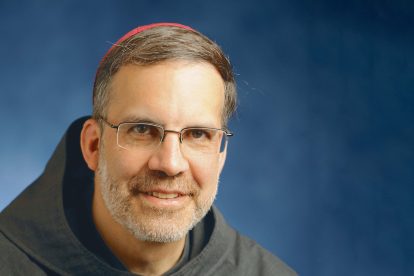Digital Edition
Speak boldly, listen charitably
Catholics must take discipleship seriously, says Bishop Stowe
The Catholic dioceses in the Appalachia region of Kentucky have a tradition of pastoral letters. While the first two letters were written by the bishops of Appalachia in 1975 and 1995, the third letter, published in 2015, was written by the laity of the region. Called the “people’s pastoral,” it was the result of a substantial number of listening sessions that included diverse voices from people living in the area, including women, Black Catholics, migrants, and LGBTQ people—individuals often left out of conversations within the institutional church.
Bishop John Stowe, O.F.M. Conv. of the Diocese of Lexington says that a history of listening to one another gives his diocese a great example to work from as it participates in what’s being called the “Synod on Synodality,” or the October 2022 Synod of Bishops with the theme “For a synodal church: communion, participation, and mission.” The preparatory proceedings for this gathering will include diocesan and national input on a never-before-seen scale for the Catholic Church. If done right, says Stowe, it could result in significant movement toward the vision of a missionary church which has characterized Pope Francis’ pontificate from the start.
In the United States, Stowe predicts our biggest challenge may also be our greatest gift: the diversity of perspectives and experiences that compose the body of Christ.
How would you describe Pope Francis’ vision for the church?
Pope Francis wants the church to be a missionary church—a church that is not confined in itself but rather active in society. When he says things like the church has to choose mission over maintenance, those are challenging words for us. He’s more direct than some of the previous popes have been about that missionary responsibility.
I think it comes from being the first Latin American pope as well as the first Jesuit pope. The Latin American church really took to heart the creation of regional conferences of bishops and the idea of discerning together. I think for him that has created an ecclesiology that is very strongly rooted in the Second Vatican Council.


